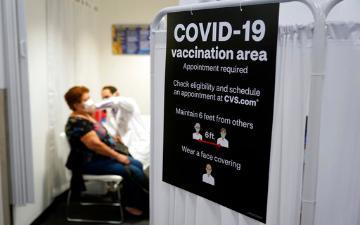
Marcio Jose Sanchez/Associated Press
Joan Harrington is the director of Social Sector Ethics (@SocSectorEthics) at the Markkula Center for Applied Ethics. Views are her own.
“The data so far suggests that Black Americans and other non-white groups are not being vaccinated at the same rate as white Americans.”
Chair of the Biden administration’s COVID-19 Health Equity Task Force, commenting on CDC data through January 14, 2021.
“Politicians watch polls. Businesses watch profits. Academics just watch. That leaves charities to look out for the most vulnerable among us, and find ways to mend and change what is wrong.”
Todd Cohen, Charity Can Fuel Change, Philanthropy J. (September 2, 2003)
Reports show that non-white Americans are comparatively under vaccinated across the country and have a disproportionately high death rate. Nonprofits that have built strong relationships with communities, and have earned their trust, are uniquely qualified to provide the needed services to close the vaccine gap and prevent additional deaths.
Nonprofits focused on particular communities are deeply connected with the people who live there and most have a high level of trust within the community from years of local service. Trust comes from listening, communicating, working together, and delivering on promises. These organizations offer a variety of services but often provide critical health and welfare services addressing food insecurity, housing issues, and other services to support the most vulnerable.
The trust in community organizations has allowed many such nonprofits to undertake tasks that are challenging to the government and others. These organizations reach the hard-to-reach to get out the vote, engage in voter registration, and participate in the census. Community organizations, including many places of worship, are primed to reach the Black, Indigenous, and people of color in their neighborhoods who might be facing challenges getting vaccinated.
COVID-19 vaccine inequality has many causes. Language and cultural barriers exist. It may be difficult to believe the vaccine is safe. Medical needs have been ignored for years in many communities and people may question the current increase in focus on their communities by medical professionals. Tackling the vaccine sign-up process is daunting and access to computers is limited. Transportation to vaccine sites is often not available. Believing that one’s citizenship status won’t matter feels unrealistic. In a part of southern Texas, the vaccination sites require crossing a checkpoint. “When you have people who are not here legally or maybe part of their family is not here legally, that can be prohibitive and not feel safe,” commented Emily Brunson, co-chair for the Working Group on Equity in COVID-19 Vaccination. These are among the challenges facing historically disenfranchised people and their communities.
Community nonprofits are getting more involved and are making a difference. In Washington State, one initiative is working with community organizations to “create language and culturally specific vaccine education and outreach, facilitate mobile pop-up vaccine clinics and provide transportation to vaccination sites.” Town hall meetings, reserving vaccines for people of color, and one-to-one assistance in booking appointments are also useful in getting people vaccinated.
Philanthropists reacted generously to the COVID-19 crisis, donating more than $20 billion for COVID-19 globally in 2020, before vaccines were developed. Now that we have vaccines to address the virus, let’s hope philanthropists support community organizations in their efforts to vaccinate those who may otherwise be overlooked.